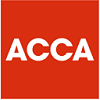*Featured In The EDP Norfolk Magazine*
Buying To Let: Since the Conservative budget in July, an increasing number of clients have been asking me what the reduction in interest relief will mean for them.
The reduction in mortgage interest relief is to be phased in over a four year years, so that from April 2017 mortgage interest will become restricted gradually over a four-year period, by the end of which relief will only be given at 20%. Landlords who pay tax at 40% and 45% will ultimately see a significant effect on the amount of tax they pay on their buying to let rental income. The amount likely to be raised by the measure, HMRC believes to be £665 million in 2020/2021.
For higher rate payers it will be a significant blow to the relief they have come to expect, but for landlords at the bottom end where perhaps property is in one partner’s name and income at higher rates is marginal, there may be a case for looking at how the property is held and optimizing income and relief.
We also see the demise of the 10% “wear and tear” allowance to effectively be replaced by a renewals system. It will increase the tax burden for some landlords.
Another aspect is, of course yield and I suspect it is largely this that is encouraging private landlords to go into buy to let. With average yields of 5.31% in Norwich, 6.31% in Cambridge and a more modest 4.03% in Ipswich compared to interest rates available from banks and building societies, one can see the incentive for investors to turn to buy to lets. I suspect they will continue to do so, but they will be more careful about properties they invest in and the net level of their anticipated return. It will be a case of projecting the figures and working it out.
The second blow came in the autumn statement, with news that a buy to let landlord will be hit by the 3% hike in Stamp Duty Land Tax from April 2016. It will add a significant cost to the acquisition of buying to let properties and is likely to prove a disincentive to some prospective investors, and will again affect their overall yield. I suspect it will do what the chancellor intended it to do, that is reduce the level of investment in buy to lets, but I can also see that there will be a rush to buy before the deadline.
A further blow came to the landlord with a change to when Capital Gains Tax will be payable on the sale of an Investment property. From April 2019 there will be a requirement to pay the tax due on the gain within 30 days of completion of the sale. At this stage one wonders how practical this requirement will be.
Taxation of buy to let properties is complex and no action should be taken on matters set out in this article without full advice from your advisor.
Written by Tax Consultant, Philip Hunt.














